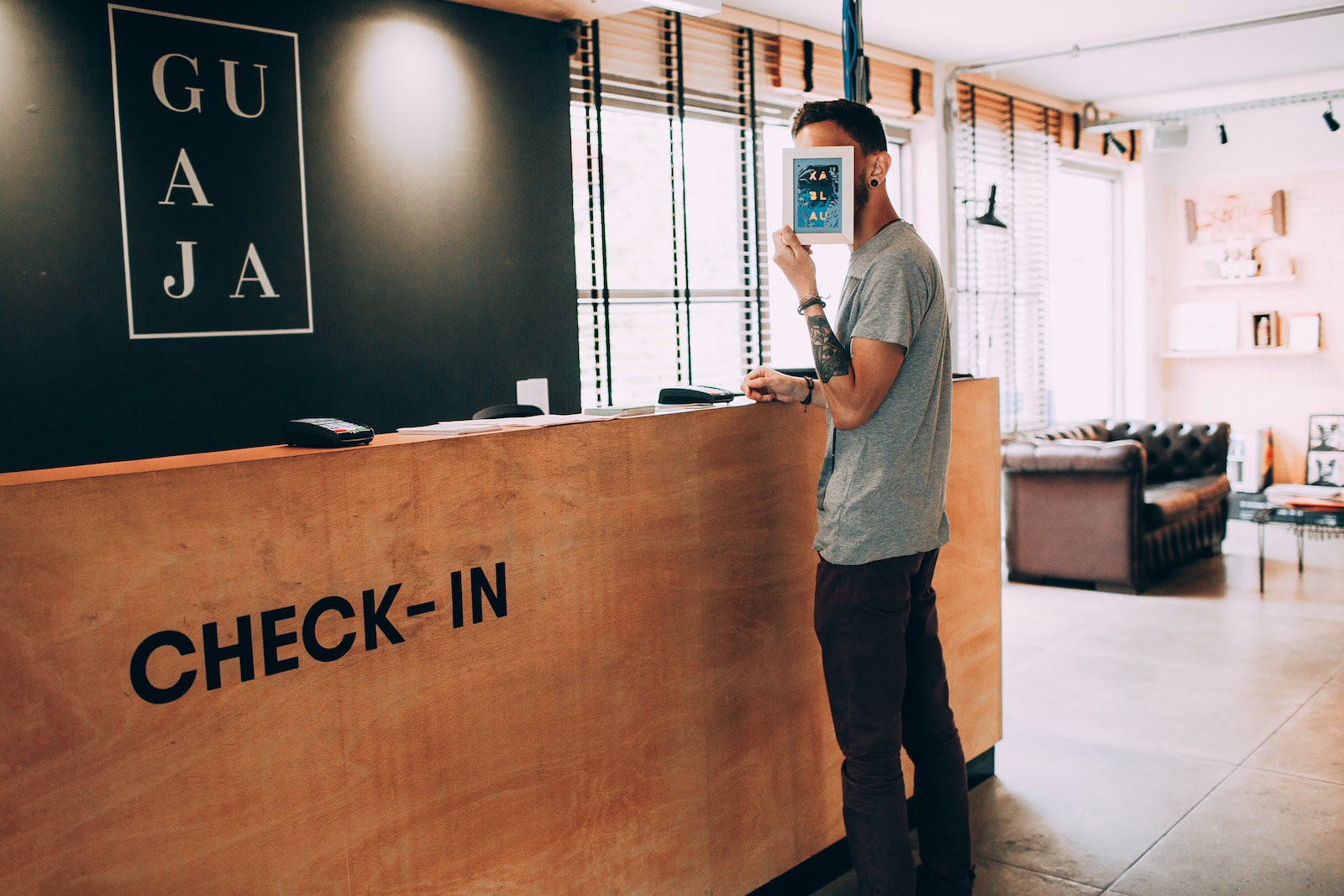When you check into a hotel, asking for a valid ID is common practice.
This might seem like an unnecessary formality or an invasion of privacy, but there are legitimate reasons behind the request.
Valid ID allows the hotel to verify the identity of the person checking in and helps prevent fraudulent activities such as identity theft, credit card fraud, or illegal activities.
Additionally, legal requirements and the need for age verification also contribute to the necessity of presenting ID at hotel check-in.
By understanding why hotels ask for ID, you can better appreciate the importance of this protocol and enjoy a smoother check-in process.
Listed below are some of the important reasons that shows why hotels request identification from guests.
Ensuring Guest Safety
One of the primary reasons hotels ask for ID is to maintain a safe environment for all guests.
By verifying the identity of each guest, hotels can keep track of who is staying on their property and ensure that no unauthorized individuals gain access to guest rooms or other facilities.
This practice protects guests’ privacy and belongings and helps maintain a secure atmosphere for everyone on the premises.
Protecting Guest Privacy
Guest privacy is a top priority for hotels.
When a hotel verifies the identity of each guest, it can better ensure that no unauthorized person gains access to sensitive information or a guest’s room.
This step also helps to prevent identity theft and other forms of fraud.
Maintaining Security And Order
Hotels are responsible for the safety and well-being of their guests. Verifying IDs allows hotels to screen out potential troublemakers or individuals with a history of disruptive behavior.
In some cases, hotels may collaborate with local law enforcement agencies to identify and prevent criminal activity on their premises.
Complying With Legal Requirements
Hotels are subject to various local, state, and federal regulations, many of which require them to maintain accurate records of guest information, including identification details.
By asking for ID, hotels can ensure they comply with these laws and avoid potential fines or legal issues.
Meeting Record-Keeping Obligations
Most jurisdictions require hotels to maintain detailed records of their guests, including names, addresses, and other identifying information.
Law enforcement or other government agencies may request these records during investigations or routine inspections.
Hotels can meet these record-keeping requirements and maintain accurate records by collecting and verifying guest IDs.
Abiding By Age Restrictions
Many hotels have minimum age requirements for guests, typically requiring them to be 18 or 21 years old to rent a room.
By checking IDs, hotels can verify that guests meet these age requirements and prevent minors from booking rooms without proper adult supervision.
Preventing Fraud And Unauthorized Use
Asking for ID helps hotels prevent fraud, such as identity theft, credit card fraud, and unauthorized use of rewards programs.
By confirming the identity of each guest, hotels can reduce their exposure to financial losses and protect their brand reputation.
Identity Theft And Credit Card Fraud Prevention
Hotels often ask for ID to match the name on the identification with the name on the credit card used to pay for the room.
This practice helps prevent identity theft and credit card fraud, ensuring the person making the reservation is a legitimate cardholder.
Ensuring Fair Use Of Rewards Programs
Many hotels offer loyalty programs or rewards points to their frequent guests. These points can often be redeemed for free stays or other perks.
By asking for ID, hotels can confirm that the person redeeming the rewards is the rightful account holder and prevent unauthorized use of these benefits.
Enhancing The Guest Experience
While it might not seem obvious, asking for ID can improve the guest experience.
By verifying the identity of each guest, hotels can personalize the check-in process, tailor amenities to individual preferences, and streamline communication with guests during their stay.
Personalizing The Check-In Process
When a hotel verifies a guest’s identity, it can easily access the guest’s reservation details and preferences.
This allows the hotel to provide a seamless check-in process and ensures that any special requests, such as room preferences or dietary needs, are considered.
This level of personalization can make guests feel more welcome and enhance their overall experience.
Tailoring Amenities And Services
By verifying guest identities, hotels can better understand their guests’ preferences and tailor their services and amenities accordingly.
For example, if a hotel knows that a particular guest is a frequent traveler or has specific preferences, it can offer customized amenities or services that cater to those needs.
This improves the guest experience, encourages repeat bookings, and fosters guest loyalty.
What Types Of ID Are Commonly Accepted At Hotels?
Hotels accept government-issued identification documents such as passports, driver’s licenses, or national ID cards.
These IDs should have a photograph, full name, date of birth, and expiration date. Some hotels may also accept other forms of identification, such as student or employee IDs.
Still, checking with the hotel beforehand is recommended to ensure a smooth check-in process.
Can I Check Into A Hotel Without An ID?
Hotels require guests to present a valid form of identification to complete the check-in process.
Checking in without an ID can lead to complications and delays, as the hotel might not be able to verify your identity, resulting in a refusal of service.
In some cases, hotels may make exceptions for guests who have forgotten their IDs or are facing extenuating circumstances, but this is usually determined on a case-by-case basis.
Is My Personal Information Safe When I Provide My ID At A Hotel?
Hotels must follow strict data protection laws and guidelines to ensure the privacy and security of guest information.
This includes proper storage, handling, and disposal of identification documents and restricting access to personal data to authorized personnel only.
Hotels also implement various security measures, such as encryption and password protection, to protect guests’ sensitive information from unauthorized access and data breaches.
Do Hotels Share My Personal Information With Third Parties?
Hotels are generally not allowed to share guests’ personal information with third parties without explicit consent, except when required by law or in specific situations, such as for law enforcement purposes or emergencies.
Hotels must comply with data protection laws and regulations, which mandate that they safeguard guests’ privacy and maintain the confidentiality of their personal data.
How Do Hotels Handle ID Requirements For International Guests?
Hotels typically accommodate international guests by accepting valid passports as the primary form of identification.
Passports are widely recognized and accepted across borders, making them the most convenient option for guests and hotels.
Sometimes, hotels may also accept other government-issued photo IDs from the guest’s home country, such as a driver’s license or national ID card.
It is always a good idea to confirm the acceptable forms of identification with the hotel before arrival to ensure a hassle-free check-in process.

